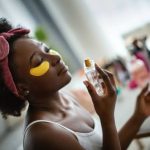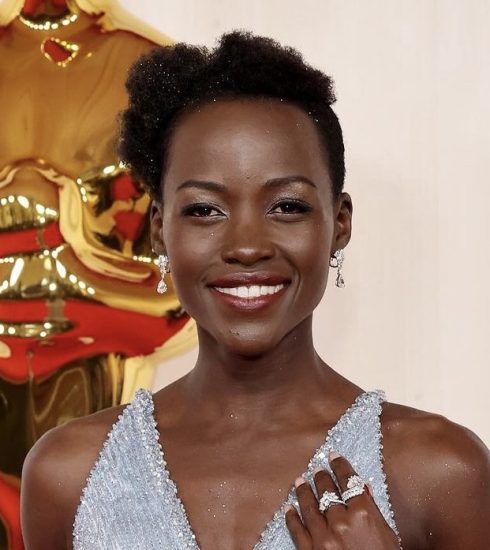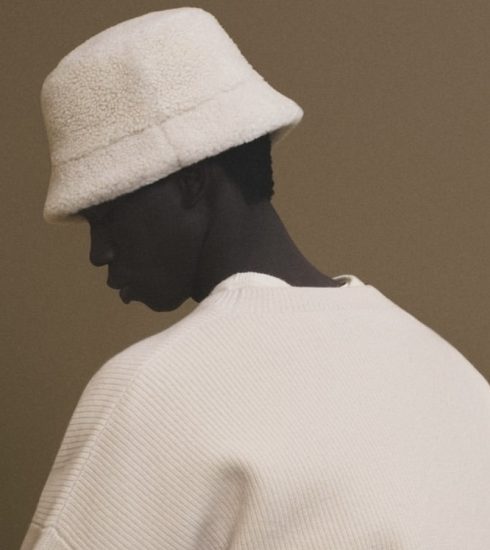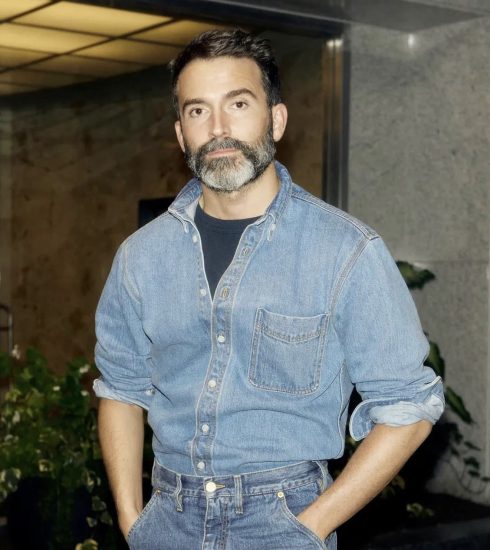Sarah Diouf’s Tongoro and Balmain in Couture Copycat Scandal
-
Ntianu Obiora

- January 31, 2024
In the fashion world, where inspiration meets innovation, the line between homage and imitation can sometimes blur. This complexity is at the forefront of the latest controversy involving renowned French fashion house Balmain, following their Fall 2024 Men’s collection debut at Paris Fashion Week on January 20.
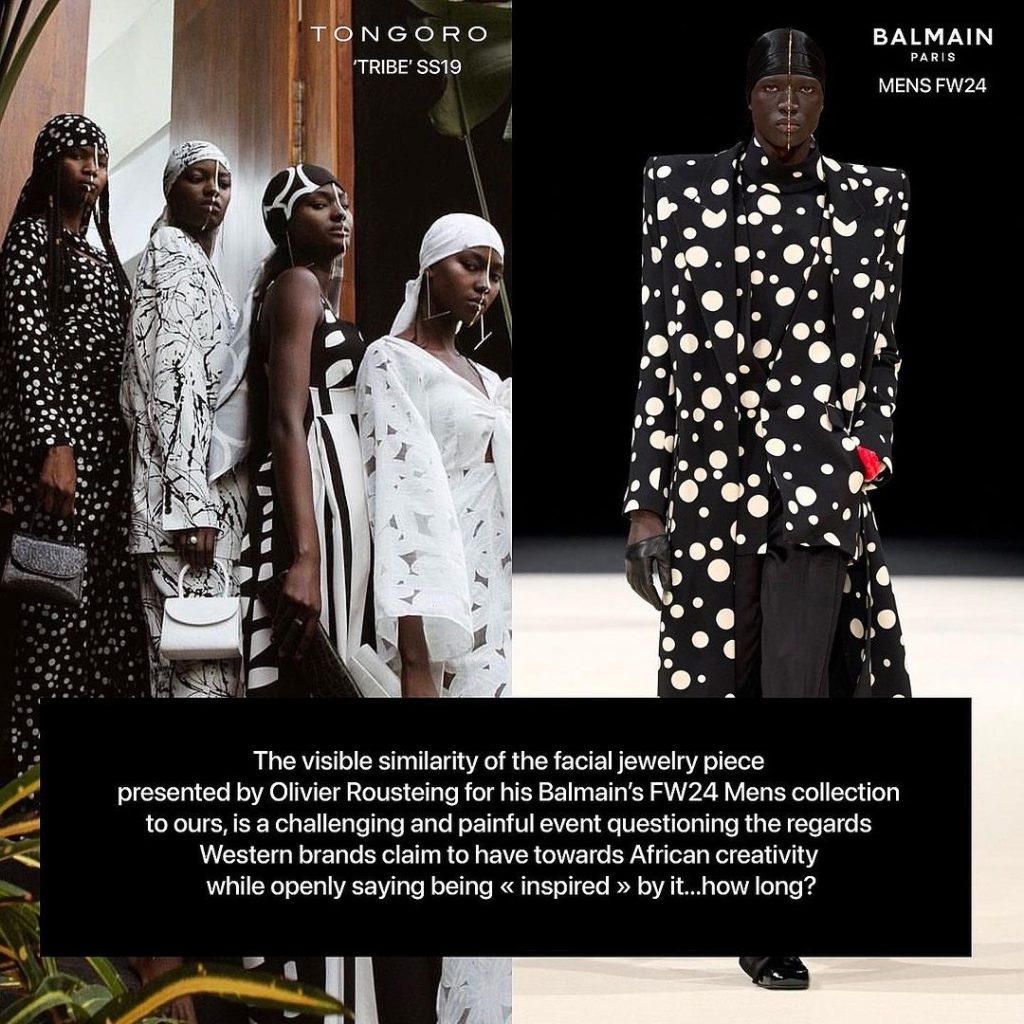
Creative director Olivier Rousteing’s recent collection has drawn significant attention, not just for its aesthetic appeal but for featuring a gold face accessory that outlines the face’s silhouette, bearing a striking resemblance to the “Cairo” jewelry piece from Sarah Diouf’s 2019 collection for her fashion brand Tongoro. This similarity has raised questions and sparked debates across social media platforms, with many calling for acknowledgment and credit to be given to Diouf for her original creation.
The use of the accessory in Balmain’s show, particularly by iconic model Naomi Campbell, has further intensified the discussion. Social media users have expressed their concerns and discontent, highlighting the piece’s close resemblance to Tongoro’s creation and pointing out the broader issue of European brands’ alleged exploitation of African creativity and aesthetics. Comments and reactions online echo a sentiment of frustration and a call for respect towards African artists’ intellectual property.
In response to the unfolding situation, Diouf herself took to Instagram, posting a comparative image of her design alongside Balmain’s version. Her post provided context on the tribal origins of the gold accessory’s design and its recognition, having been worn by notable personalities like Alicia Keys, Beyoncé, and even Naomi Campbell in the past.
This incident isn’t the first time Diouf has faced such a situation. In 2017, Yves Saint Laurent was accused of replicating her Mburu Bag design, which was a part of her Spring 2016 collection for Tongoro. During an interview with OkayAfrica, Diouf discussed the challenges African designers face in protecting their intellectual property, highlighting the need for more robust systems to safeguard African creatives’ work.
In describing its 2024 men’s collection, Balmain alludes to drawing inspiration from the sapeur cultural movement, a group of elegantly dressed Congolese individuals known for their distinctive style. The brand’s collaboration with artists like Ghanaian Prince Gyasi and British-Cameroonian Ibby Njoya underlines its vision for the collection.
The unfolding discourse underscores a critical conversation in the fashion industry about respecting and crediting the original work of designers, particularly those from underrepresented communities. It reflects an ongoing dialogue about cultural appropriation versus appreciation, the importance of acknowledging creative sources, and the need for equity and respect in the global fashion landscape.

Ntianu Obiora is a versatile creative professional with over a decade of experience in publishing, marketing, communications, and digital strategy. She is the Online Editor at THEWILL DOWNTOWN
- Ntianu Obiora
- Ntianu Obiora
- Ntianu Obiora
- Ntianu Obiora
- Ntianu Obiora
- Ntianu Obiora
- Ntianu Obiora
- Ntianu Obiora
- Ntianu Obiora
- Ntianu Obiora
- Ntianu Obiora
- Ntianu Obiora
- Ntianu Obiora
- Ntianu Obiora
- Ntianu Obiora
- Ntianu Obiora
- Ntianu Obiora
- Ntianu Obiora
- Ntianu Obiora
- Ntianu Obiora
- Ntianu Obiora
- Ntianu Obiora
- Ntianu Obiora
- Ntianu Obiora
- Ntianu Obiora
- Ntianu Obiora
- Ntianu Obiora
- Ntianu Obiora
- Ntianu Obiora
- Ntianu Obiora
- Ntianu Obiora
- Ntianu Obiora
- Ntianu Obiora
- Ntianu Obiora
- Ntianu Obiora
- Ntianu Obiora
- Ntianu Obiora
- Ntianu Obiora
- Ntianu Obiora
- Ntianu Obiora
- Ntianu Obiora
- Ntianu Obiora
- Ntianu Obiora
- Ntianu Obiora
- Ntianu Obiora
- Ntianu Obiora
- Ntianu Obiora
- Ntianu Obiora
- Ntianu Obiora
- Ntianu Obiora
- Ntianu Obiora
- Ntianu Obiora
- Ntianu Obiora
- Ntianu Obiora
- Ntianu Obiora
- Ntianu Obiora
- Ntianu Obiora
- Ntianu Obiora
- Ntianu Obiora
- Ntianu Obiora
- Ntianu Obiora
- Ntianu Obiora
- Ntianu Obiora
- Ntianu Obiora
- Ntianu Obiora
- Ntianu Obiora
- Ntianu Obiora
- Ntianu Obiora
- Ntianu Obiora
- Ntianu Obiora
- Ntianu Obiora
- Ntianu Obiora
About Author / Ntianu Obiora
Ntianu Obiora is a versatile creative professional with over a decade of experience in publishing, marketing, communications, and digital strategy. She is the Online Editor at THEWILL DOWNTOWN



